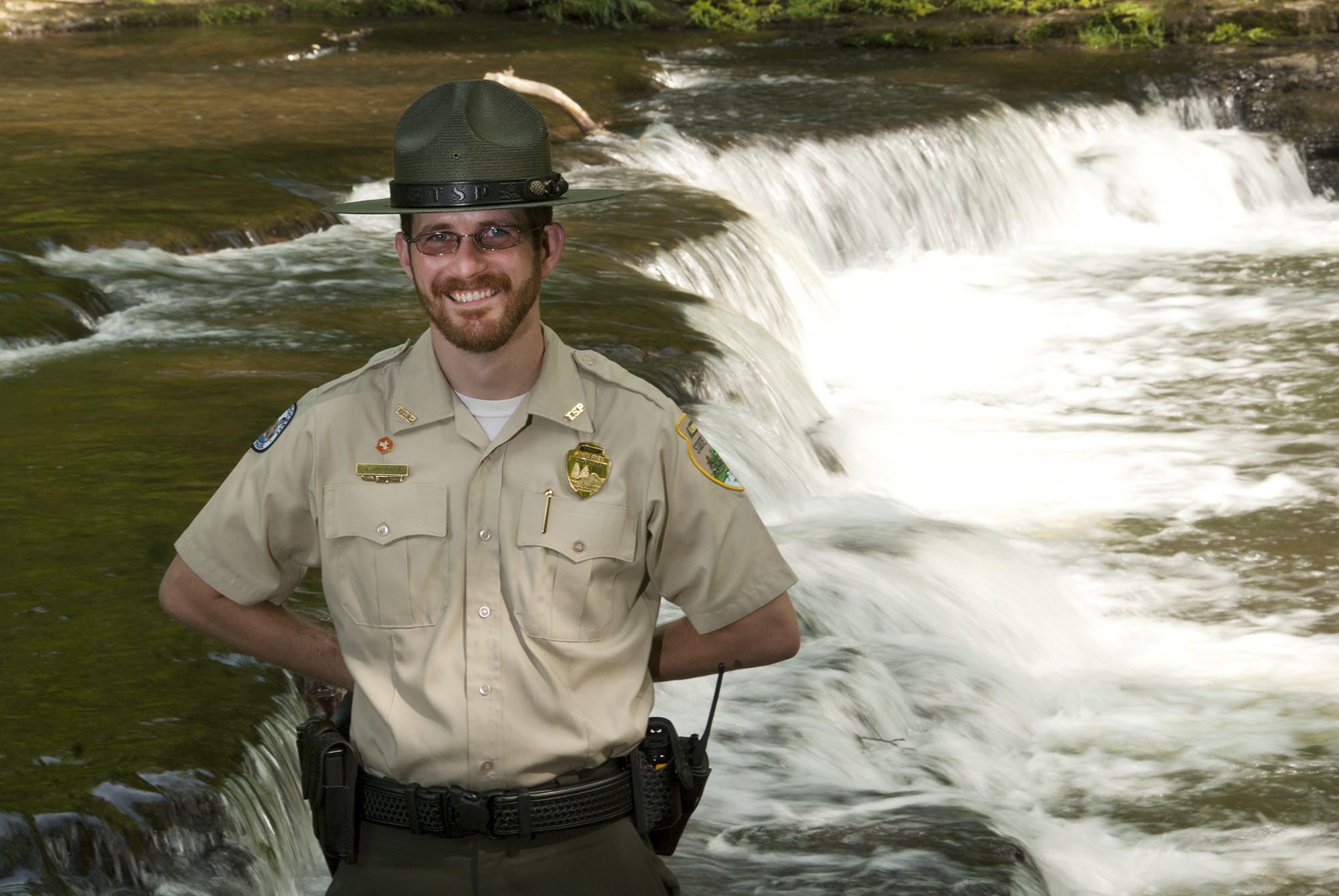By Joe Lofaro
When John Bass (Martin ’05) was a small child, 5 years old to be exact, he told his mother he wanted to be a park ranger in Alaska. He has achieved much of his goal.
The Alaska part didn’t work out, but Bass became a park ranger and achieved another goal along the way. If he couldn’t go to Alaska, he wanted to be near family. “I always wanted to work close to home,” Bass says. “I grew up in Aspen Hill, near Pulaski.”
David Crockett State Park, where Bass is now the park manager, is in Lawrenceburg, about an hour and half from Nashville and right down the road from Giles County. Lawrenceburg is far from Alaska, but this park ranger never gave up on his goal.
Under the direction of Bass, David Crockett State Park was named the best in the state by the Tennessee Department of Environment and Conservation last year. The park covers about 1,000 acres and includes a full buffet restaurant, seven modern cabins, an Olympic-size swimming pool and 107 recreational vehicle camping sites along with hiking and fitness trails.
“I have the privilege to work with an excellent staff that is the backbone of any great park,” Bass says. “I wear a lot of hats. I might be offering emergency medical treatment one day, helping do electrical or plumbing work the next.”
While a freshman at UT Martin, Bass worked at Yellowstone National Park in the summer. Also during college, he worked seasonally at Reelfoot Lake State Park, where he led bald eagle tours and pontoon tours. “I presented educational programs to over 35,000 visitors during the time I was there,” says Bass, who met his wife, Lisa (Martin ’05), at UT Martin. They are parents of Tucker Lee, who recently turned 1.
“I wear a lot of hats. I might be offering emergency medical treatment one day, helping do electrical or plumbing work the next.”
After college, Bass got a full-time job at Montgomery Bell State Park near Dickson, Tenn., a little closer to Aspen Hill but nowhere near Alaska. While working at the park, Bass enrolled in the online master’s program in natural resource management. “I grew up on a 60-acre farm, and I was always hunting and fishing,” Bass says. “Why not turn my passion into a career?”
He was hired as park manager at David Crockett State Park in 2012, and not long afterward, he secured about $20,000 in grant funding from the National Park Service to complete an interpretive hiking trail on the original Trail of Tears.
“Due to the diligent efforts of local historians, it was determined the Bell detachment of the Trail of Tears was led up the old road to Waynesboro in 1838, which dissects through part of the park, and remnants of the wagon road can still be seen,” Bass says.
Still no Alaska, however. But, who knows? Bass’ marriage to Lisa is as close to Alaska as he has gotten. Lisa’s grandmother is a full-blooded native Inupiaq Eskimo from Barrow, Alaska, the northernmost U.S. city.



